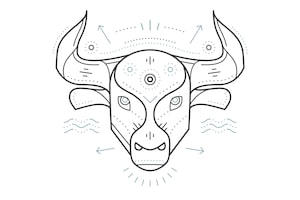
Fighters from the Ukrainian army's 30th Brigade take their positions in a trench in eastern Ukraine. The Ukrainian photojournalist who took this picture, Maxim Dondyuk, 'never intended to be a war photographer ... but with the war he felt he was obligated,' says his sponsor, Canadian photographer Edward Burtynsky.Maxim Dondyuk / TIME
The renowned Canadian photographer Edward Burtynsky had difficulties starting kindergarten in St. Catharines, Ont.: He kept speaking Ukrainian, the first language he learned.
Today, the son of Ukrainian immigrants who arrived in Canada around 1949 is particularly aware of those roots. He still has relatives in Ukraine, including two of his mother’s great nieces, whose safety the family is watching closely. He has been helping raise funds for the war-ravaged country and preparing to sponsor refugees.
As he accepted the prize for outstanding contribution to photography at the Sony World Photography Awards in London on Tuesday, he made a statement dedicating the honour to Ukrainian artists – in particular the photographers who have been documenting the war launched by Russian President Vladimir Putin.
“As a Canadian-Ukrainian, I would like to share this award with the artists of Ukraine, many of whom are bravely documenting the desecration of both their people and lands.

A photograph of Maksym Levin is displayed at a funeral service at St. Michael's Cathedral in Kyiv on April 4. According to the Prosecutor General's office of Ukraine, Maks Levin was killed by bullets allegedly fired by the Russian military on the outskirts of Kyiv.Anastasia Vlasova/Getty Images
“Photography embodies truth in a way that transcends language, culture, borders, and time. In the face of fake news and Putin’s vicious disinformation campaign, Ukrainian photographers are using this moment to show the world the truth.
“Their dedication to their art, even as their towns are surrounded by invading Russian forces bringing terror to their doorsteps, is a bravery that humbles me.
“Photography is about light conquering darkness. And as we speak, Ukrainian photographers are conquering an unimaginable form of darkness. I can think of no more outstanding contribution to photography than that.”
In an interview, he pointed specifically to the work of Maxim Dondyuk, a photographer he has been sponsoring and with whom he has plans to collaborate.
Locals from village Chervone, occupied by Russian troops, evacuate to an area controlled by Ukrainian forces, near Vyshgorod, Ukraine, on March 10.MAKSIM LEVIN/Reuters
“He never intended to be a war photographer. He wanted to be an art photographer, but with the war he felt he was obligated,” Burtynsky said.
He also mentioned the work of the late Maks Levin, who was killed near Kyiv earlier this month, and that of Julia Kochetova and Arthur Bondar, all of whom have photographed the war.
:format(webp)/cloudfront-us-east-1.images.arcpublishing.com/tgam/LDOG6IWI7JDR3DOSZXPZV5OVW4.jpg)
:format(webp)/cloudfront-us-east-1.images.arcpublishing.com/tgam/FDAXLCSBOJC4RKCA2E775A26PE.jpg)
:format(webp)/cloudfront-us-east-1.images.arcpublishing.com/tgam/YPM2XIXPVRIYBLAUY36HAADY6Q.JPG)
:format(webp)/cloudfront-us-east-1.images.arcpublishing.com/tgam/3NUIUKTQLBPLNDJY63F4NT3FLA.JPG)
:format(webp)/cloudfront-us-east-1.images.arcpublishing.com/tgam/D33E4EM4HNL2JEKQODQT2X2FTA.jpg)
:format(webp)/cloudfront-us-east-1.images.arcpublishing.com/tgam/LL4L3YWFBRL7DHV3KHPWG2QLSY.jpg)
Burtynsky is internationally recognized for his monumental photographs of industrial landscapes and processes such as mines, oil fields and factories. The Sony Outstanding Contribution Award, now in its 15th year, honours a person or group who has had a significant impact on the medium.
As well as sharing the honour with Ukrainian artists, Burtynsky raised almost $700,000 for the Red Cross in March by promising prints of his photographs to donors who showed him receipts for $10,000 gifts to the charity.

The Kiev maternity unit was forced to move completely to the basement of their hospital, after the destruction of the house next to them.Maxim Dondyuk/Der Spiegel
Burtynsky’s parents came to Canada separately but under similar circumstances. After the Nazi occupation of Ukraine during the Second World War, both were sent to Germany, where they worked as slave labourers on farms. When the war ended, each stayed in Germany rather than return to Ukraine, which was then back under Soviet rule. Burtynsky said that, as a girl, his mother, Mary, had witnessed people in her village starving to death during the Holodomor, the 1932-33 famine induced by Joseph Stalin.
In the late 1940s, they eventually found their way to Canada and met. They lived at first in Kapuskasing, Ont., where Burtynsky’s father, Peter, was working on a project surveying forests and lakes. He later worked on the assembly line at General Motors and died of cancer in his 40s. Today she lives in a nursing home in Barrie, Ont., but as long as Ukraine was part of the Soviet Union she was active in a women’s fundraising group that supported the country’s independence from Russia.
“The whole conversation was about freeing Ukraine,” Burtynsky said, adding that his mother is greatly saddened by this new war: “At 98, she is saying, ‘I wish I didn’t have to witness this.’”

Snow covers the trenches where the Ukrainian 30th Brigade stand guard.Maxim Dondyuk / TIME
War in Ukraine: More from The Globe and Mail
The Decibel
Ukrainian troops found evidence of atrocities when they took back Russian-occupied Bucha, Chernihiv and other areas in the north. Globe and Mail correspondent Nathan VanderKlippe explains what he saw there. Subscribe for more episodes.
The Globe and Mail in Ukraine
Couple in Lviv get married as an act of protest against Russia
Inside prosecutors’ efforts to gather evidence of war crimes in Bucha
Bucha residents cope with aftermath of carnage while fearing a return of Russian forces
Sign up for The Globe’s arts and lifestyle newsletters for more news, columns and advice in your inbox.




 Kate Taylor
Kate Taylor